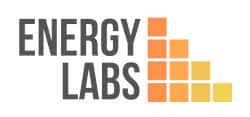If you’re looking for ways to save energy and money in your home, you might have considered installing a heat recovery system. But will it actually increase your energy bills?
It’s important to understand how a heat recovery system works before answering this question. Heat recovery systems take the warm air that would otherwise escape through vents and use it to preheat incoming air. This means that air coming into your home is already at a higher temperature, so you don’t need to use as much energy to heat it further. The result is lower energy bills and a more comfortable living environment.
But while heat recovery systems can help reduce your energy bills, they can also increase them too. This depends on the quality of the system that you choose and how efficient it is. Poor quality systems may not be as effective as more expensive ones, which could lead to higher energy bills in the long run if you’re not getting the best out of your system. It’s also important to make sure that your system is installed correctly – if it isn’t then it won’t work as well as it should, which could lead to higher energy bills too.
On top of this, you should consider how often your heating needs to be used when deciding whether or not a heat recovery system will increase or decrease your energy bills. If you live in an area with mild temperatures and don’t need to use your heating very often, then a heat recovery system might not pay off in terms of lower energy bills. However, if you live somewhere where temperatures dip low for extended periods throughout the year and rely heavily on heating then a heat recovery system could be worth it in terms of savings on your energy bill – especially if you have an efficient one installed correctly.
Ultimately, whether or not a heat recovery system will increase or decrease your energy bills depends on several factors such as the efficiency of the system itself, how often you need heating and how well it is installed. It’s always best to do some research before deciding whether or not investing in one is right for you – but if done correctly then there’s no reason why installing one shouldn’t save you money in the long run!
